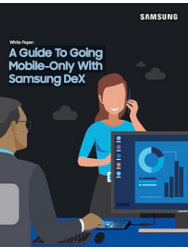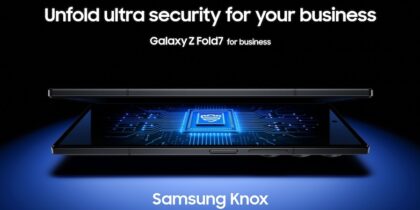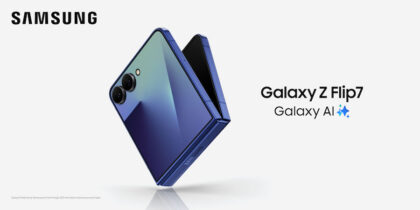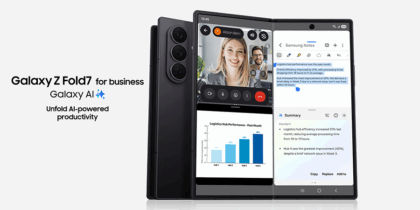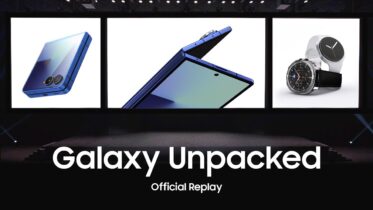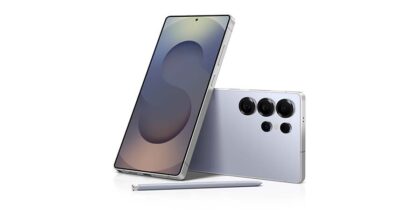“Mobile-first” has been the mantra of forward-thinking businesses for some time, but “mobile-only” may soon be the norm for modern workforces.
Today’s super powerful smartphones already pack the processing power, storage capacity, connectivity and screen resolution of a laptop. Businesses of all sizes — from startups to large enterprise brands — are embracing mobile applications and workflows for greater productivity, and relying less and less on PCs for computing.
What is Mobile-Only?
Going mobile-only is about rethinking your IT strategy, proactively moving away from legacy technology and adopting innovative mobile platforms and applications that let your team members become more productive. Ultimately, it means all of your computing needs and digital workflows are powered by smartphones or tablets. Going mobile-only benefits the user, who can access and work from anywhere. It also benefits the IT team, who can focus on a single platform for endpoint computing and applications.
What going mobile-only doesn’t mean is doing all your productivity work with two thumbs on a 6.3-inch screen. For Samsung, a big part of the vision of mobile-only is Samsung DeX. Short for desktop experience, DeX allows you to use a single cable to connect your Samsung Galaxy smartphone directly to a monitor, keyboard and mouse, and deliver a familiar, intuitive desktop UX. Your phone is no longer just a phone; it powers your desktop too.
Going Mobile-Only With DeX
Your comprehensive guide to rolling out a mobile-only solution for your workers. Download Now
What about your business applications? Many of your favorite apps like Microsoft Office have DeX optimized versions available, and those that don’t can be accessed via VDI. Since the desktop is powered by your phone, it’s all protected by Samsung Knox and biometrics.
Your Industry Is Ready for an Upgrade
Looking across industries, we see the same struggles playing out on the path to digital transformation. Mobile has increased the speed of business and new applications have streamlined some workflows, but other business processes are being held back by legacy technology or a lack of proactive investment.
Whether you’re a physician or nurse, a police officer, a retail warehouse manager or any modern professional who’s on the move and wishing for more freedom to work where you want, using a single, adaptable device for all computing requirements just makes sense. Most will happily forget their desktops and laptops. It’s time to ditch the laptop for DeX.
Consider the hospital environment where, despite the adoption of electronic medical records, physicians are often still reliant on pen and paper, or forced to return to a nursing station to print charts or type up patient updates. Now they can use their smartphone and DeX to connect as they move throughout the hospital.
In public safety, officers lose access to the computer aided dispatch when they leave their vehicles and become reliant on two-way radio for communications. We’ve introduced a DeX in-vehicle solution that replaces the existing laptops in the cruiser, and the hotdesks for the department. This lets police go mobile-only and streamline costs.
In manufacturing and logistics warehouses, existing technology for scanning, asset tracking and other operations is reaching end of life. The long-overdue migration from clunky handhelds and green-screen mainframes represents an opportunity to leap ahead into a mobile-only future.
Making the Transition
Shifting an entire organization to a mobile-only strategy takes time. You have to walk before you can run. Mobile-only often starts with a small group of users or a single department, and then flourishes. We are serious about helping businesses go mobile-only, and have partnered with seasoned IT consultants to create a comprehensive guide bringing together the best practices.
When undertaking any major technology transition, getting buy-in from corporate leadership is imperative. The CIO must know that security and compliance concerns are addressed, and the CFO must see the benefits of the financial investment in new technology.
Shifting from PCs to mobile-only with DeX means a new operating system which is similar, but not identical, to those that your employees are most familiar with. It also means carefully reviewing your applications – Windows, web-based and mobile – to ensure employees can access everything they need.
During and after the pilot, users should be surveyed to determine whether the deployment process should be modified for future groups. Engaging users and listening to their feedback is critical for success.
Expanding the pilot program to other groups provides the real benefits of mobile-only. In addition to the hard and soft cost savings from eliminating multiple devices and access mechanisms, users will maximize their productivity by having a single device that conveniently and securely does everything they need.
Transitioning to mobile-only now will allow your organization to reap the benefits sooner and put you at an advantage to the competition. Many discover that it can be an important moment of transformation for the organization, when you finally lay to rest legacy technology and processes that have been holding you back. So, are you ready to forget the laptop, on purpose?
Learn how the Galaxy Note9 and Samsung DeX can power mobility, power productivity and power your business.
